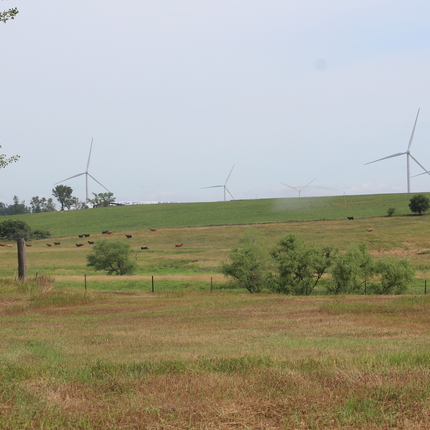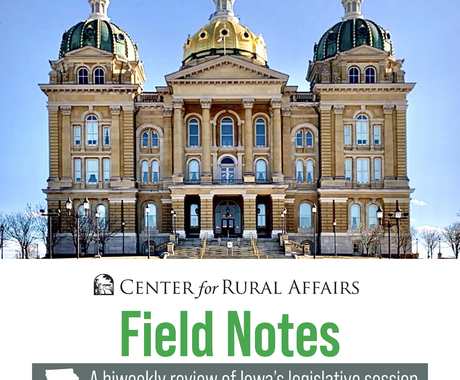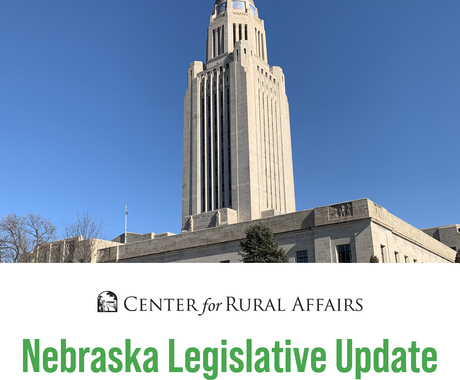By Jim Knopik, Center for Rural Affairs board member who lives in North Star, Neb. This piece was published in the opinion sections of the Norfolk Daily News and the Nance County Journal.
I attended what was supposed to be a community energy meeting in Norfolk, Neb., last Tuesday evening. It seemed to be more like a salesmen's pitch on how electricity produced with coal, nuclear power or natural gas is the customer's "best buy." The panelists' main defense, as always, is the "economics" or the current dollar cost of producing electricity.
Sadly only one hour was allotted for the event. The panelists took up most of the time making their pitch, hardly reserving any time for the public to participate.
The CEO of Nebraska Public Power District (NPPD) did his best to skew conversation by talking about incentives to develop new renewable energy projects simply as artificial supports that would allow them to compete with coal, nuclear and natural gas. I was hopeful he would talk about the future of energy. I thought that he might talk about what the industries were doing about reducing the carbon footprint of coal and the electric sector as a whole. I wondered if a safe place for stockpiling spent rods from nuclear plants has been found, if the extracting of natural gas by fracking is safe or if ethanol is really more than an economic band aid to increase the price of corn.
I have heard all of the propaganda about the "economics" of renewable energy not working, about the reliability of coal, and energy independence that these outdated resources have offered. This perspective is uninformed and lacks real vision for the future. I had hoped to hear what the public concerns, questions and visions for the future might be. I wanted to hear what NPPD's ratepayers wanted.
I understand that the need for electricity produced by fossil fuels is important right now but there is definitely a better way forward. I don't think our current practices will ever be considered "the good ole days," or an approach that is right for Nebraska's energy future.
The Center For Rural Affairs and other Clean Energy Nebraska groups who jointly promoted this event surely were disappointed as well.




